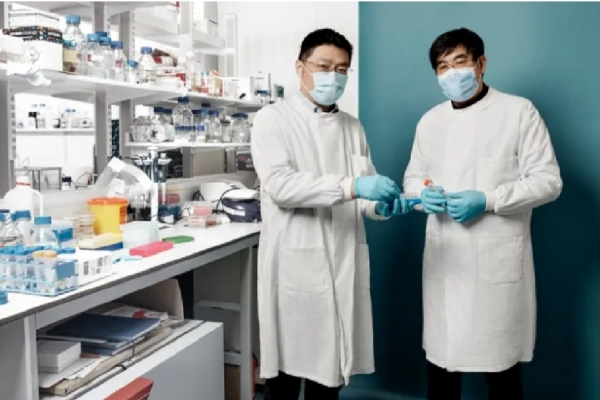
The pandemic has sparked a new generation of academic-led healthtech startups, and universities are
Covid has turned universities into healthcare startup factories
- ByPassionIT News --
- 2022-05-17
In January 2020, Zhanfeng Cui, a professor of chemical engineering at the University of Oxford, was travelling through Heathrow Airport on his way home from China. When he arrived in London, Cui was surprised to find that there were no temperature checks or tests taking place at the terminal at a time when China was on high alert following the emergence of a new, highly-transmissible respiratory disease. “We [Cui and his colleagues] knew we had to contribute and help stop the spread of the disease in some way,” Cui says.
So when Cui returned to Oxford he approached Wei Huang, a professor of synthetic biology, and together they began working on a rapid coronavirus test that could be implemented at airport borders when passengers are making their way through airport terminals.
By March, the scientists from Oxford’s department of engineering science and the Oxford Suzhou Centre for Advanced Research had successfully developed a viral RNA test to rapidly diagnose Covid-19. “We needed regulatory approval to administer the test and because of that, we had to set up a company,” Cui says. Three months later, with the help of the university’s commercialisation arm, the team from Oxford managed to set up a social venture spinout company called Oxsed which would allow them to distribute the test at speed.
Oxsed is just one of many UK university spinouts created on the back of the coronavirus pandemic, joining startups discovering drugs, developing vaccines and designing personal protective equipment.
In spite of the pandemic, investment into commercial ventures run by university academics has grown. Parkwalk Advisors, a growth fund manager backing UK university spinouts, says that the amount invested into these types of companies in 2020 grew from £1.07 billion in 2019 to £1.11bn in 2020.
Spinouts are startups registered by universities, made from the best academic-led research originating from university labs. As of 2018, Research England says that approximately 3,000 IP-based UK university spinouts have been created.
According to law firm Anderson Law, nine out of ten university spinouts survive beyond five years; a high success rate compared to non-university startups, which the law firm estimates to be only two out of ten. Cui thinks the reason for their success is clear. “We have access to people,” he says. “We were able to get the post-docs who were all willing to help.”
In late 2019, Shaaz Ghouse, a research associate in mechanical engineering at Imperial College London co-founded Additive Instruments, a spinout set up to make orthopaedic implants. When the pandemic hit, the spinout pivoted to manufacture FFP3 face masks through injection moulding. It received a grant from the Royal Academy of Engineering and Innovate UK.
Without the university, Ghouse says that it would have been more difficult to get the business off the ground, because Imperial College London paid for the patent and filed the IP. “I imagine it's quite difficult to apply for an Innovate UK grant as a startup that's only existed for a couple of months, but when you partner with Imperial, it adds a lot of credence to what you're doing,” he says. “We're currently still based at Imperial, so there's huge benefits in not having to pay for office space, having access to all the facilities and all the equipment. We have access to £300,000 3D printers.”
Between 2018 and 2019, sales of university spinouts’ company shares generated over £61 million. This was an increase of 37 per cent year on year from sales in 2017/2018, according to Octopus Ventures’ annual entrepreneurial impact rankings.
In 2017, Queen’s University Belfast PhD student Deva Senevirathne was demonstrating a biomedical-based analytics framework, which she coded in collaboration with her supervisor Darragh McArt, when she caught the eye of a large US biotech company. The framework was a platform that helped users analyse big data to accelerate cancer research discoveries.
Queen’s University Belfast’s commercialisation arm then approached McArt and Senevirathne to ask them if they would be interested in turning the research project into a full blown company. In 2018 Sonrai Analytics was established, and the platform it developed was called INDRA (Integromics Data Research Application), allowing biotech companies to manage and analyse data to speed up research and development.









Comment